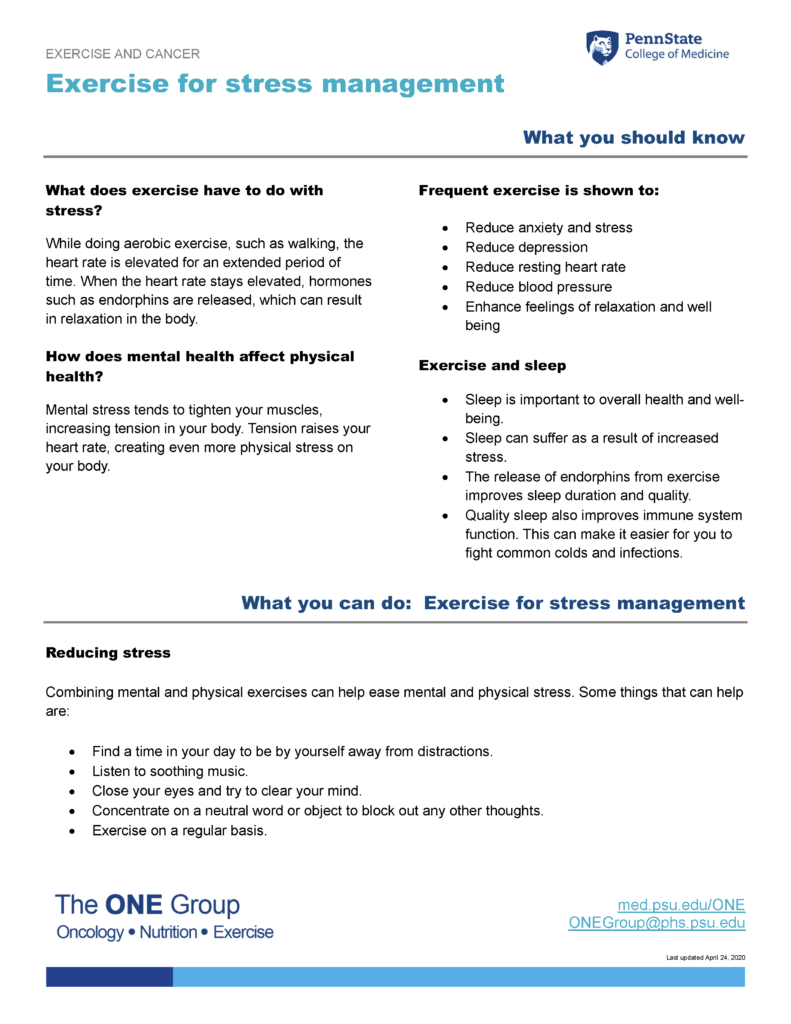Learn about exercise for stress management in people with cancer in this guide from The ONE Group (Oncology – Nutrition – Exercise) at Penn State College of Medicine.
Jump to topic
Search
What you should know
What does exercise have to do with stress?
While doing aerobic exercise, such as walking, the heart rate is elevated for an extended period of time. When the heart rate stays elevated, hormones such as endorphins are released, which can result in relaxation in the body.
How does mental health affect physical health?
Mental stress tends to tighten your muscles, increasing tension in your body. Tension raises your heart rate, creating even more physical stress on your body.
Frequent exercise is shown to:
- Reduce anxiety and stress
- Reduce depression
- Reduce resting heart rate
- Reduce blood pressure
- Enhance feelings of relaxation and well-being
Exercise and sleep
- Sleep is important to overall health and well-being.
- Sleep can suffer as a result of increased stress.
- The release of endorphins from exercise improves sleep duration and quality.
- Quality sleep also improves immune system function. This can make it easier for you to fight common colds and infections.
What you can do: Exercise for stress management
Reducing stress
Combining mental and physical exercises can help ease mental and physical stress. Some things that can help are:
- Find a time in your day to be by yourself away from distractions.
- Listen to soothing music.
- Close your eyes and try to clear your mind.
- Concentrate on a neutral word or object to block out any other thoughts.
- Exercise on a regular basis.
Breathing: How does it affect me?
Slow and deep breathing can help your body relax, which helps your mind also relax. Slow breaths in and out that expand your diaphragm can cause the jaw to relax, releasing tension in the neck, shoulders and hips and leads to total body relaxation.
Try this exercise
- Breathe in slowly and deeply, expanding your rib cage so that your breathing muscles are put to maximal use.
- Inhale for three seconds and then hold for two seconds.
- Exhale slowly for four seconds, thinking “relax.”
- Repeat the entire sequence five to 10 times, concentrating on breathing deeply and slowly.
American College of Sports Medicine recommendations
The American College of Sports Medicine recommends that people living with and beyond cancer walk for up to thirty minutes a day, three times per week, to address anxiety and depression.
Where can I find more information about aerobic and strength-training exercises?
If you are interested in starting aerobic and/or strength-training exercises, The ONE Group (Oncology – Nutrition – Exercise) provides videos demonstrating proper form for more than 50 exercises.
Notes
References
- American College of Sports Medicine Moving Through Cancer initiative
- Harvard Health Publishing
- Mayo Clinic

